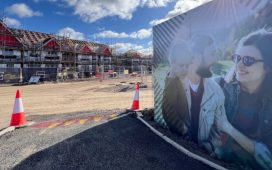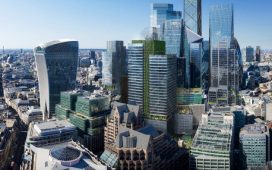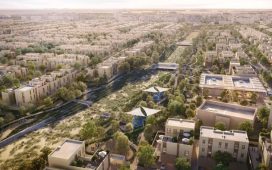Unlock the Editor’s Digest for free
Roula Khalaf, Editor of the FT, selects her favourite stories in this weekly newsletter.
The chief executive of a leading Hong Kong property group has declared the end of a “golden era” for the territory’s residential developers as the government takes an increasingly active hand in boosting housing supply.
“Hong Kong real estate is no longer a totally free market,” said Donald Choi, chief executive at Chinachem, a large unlisted developer and one of the top sellers of new flats in the city. “The government wants to take more initiative in controlling how land and housing is supplied.”
Choi said Hong Kong’s government had continued to launch tenders for new plots of land for building, despite lacklustre demand after several years of strain for the city’s economy. Previous administrations have typically halted land auctions when the city’s economy slowed in order to put a floor under prices.
“The golden era of high profit margins in the housing market is over,” he told the Financial Times. “Developers need to get into different property asset classes — not just housing, but data centres, factories and other asset classes of the new economy.”
That shift comes as China’s central government in Beijing has sought to expand affordable housing in Hong Kong, in line with Chinese leader Xi Jinping’s “common prosperity” drive.
“The wealth gap makes homes very unaffordable for normal citizens,” Choi said. “As a result, the [Hong Kong] government has the intention to correct that.”
Hong Kong has also introduced conditions for mass-market housing projects that require developers to reserve some units for first-time buyers at a capped price.
At one land auction that closed in August, the government required all of the 1,940 homes planned for the site to be sold at below market rates. The resulting lack of interest from developers eventually prompted the government to withdraw the tender.
As a result of such requirements, Choi said, “private sector developers are turning to other options so that they can have more control over their developments”.
Rather than bidding for new plots that come with restrictions, some large developers are applying to rezone agricultural land that they already own for residential development, he explained.
The Hong Kong government said its “prime concerns are not developers’ profit margins” but “whether private housing is affordable to our people”.
New land plots would continue being “put to market in an orderly manner to ensure a steady supply”, it added, which “should not be affected by short-term market fluctuations”.
Hong Kong’s property market, among the most expensive in the world, rose in tandem with the explosion of wealth in China. But the sector has been hit by an exodus of residents spurred by Beijing’s political crackdown on the city and strict coronavirus pandemic controls, which were only lifted late last year.
This year the Hang Seng Properties index — which includes groups such as CK Asset, Henderson Land and Sun Hung Kai — has fallen by about a third, with the US Federal Reserve’s “higher for longer” rates adding to pressure on share prices.
Choi said that due to the government’s policy shift, he expected that “big property developers will continue to diversify outside Hong Kong, not just investing in China but also in the UK, Singapore, Malaysia and so on”.
Chinachem has made a series of investments in the UK over the past two years. In September 2022, the company paid more than £158mn to buy TikTok’s London office block, and in January this year acquired another office building in the city currently used by Deloitte for £350mn.










